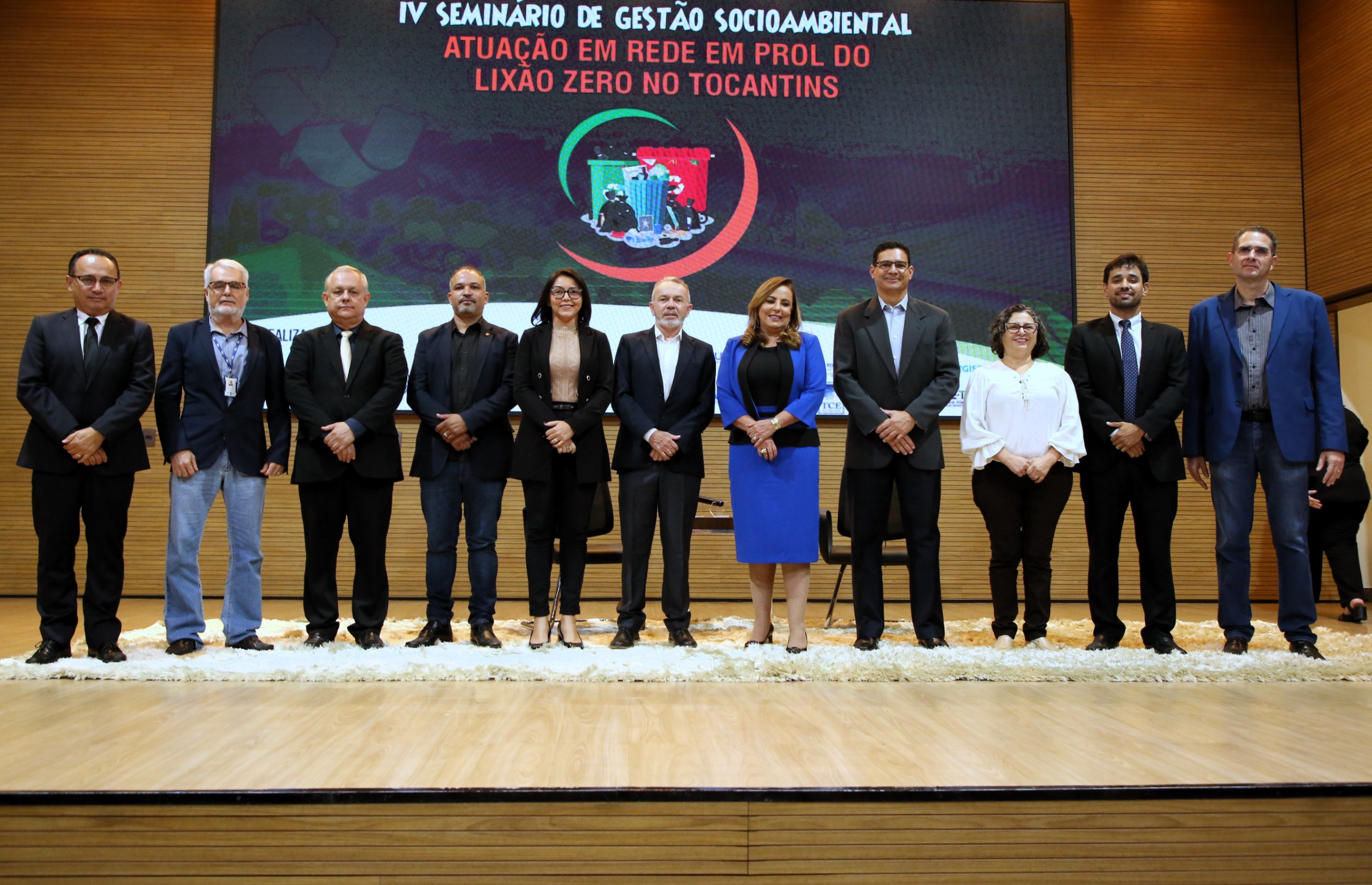
Concern about environmental issues has never been so high. Brazil, with its vast territory and multiple ecosystems, has a responsibility to protect several natural assets. In this context, the Judiciary of the State of Tocantins, through its Coordination of Socio-Environmental Management and Social Responsibility (Cogersa) and in partnership with the Superior School of the Judges of the State of Tocantins (Esmat), is reaffirming its commitment to dialogue and good practices by opening the IV Socio-Environmental Management Seminar with the theme on "Networking for Zero Landfill in the State of Tocantins".
The issue of garbage dumps in the State of Tocantins affects the environment as well as public health and the quality of life of citizens. Just thirty-five years old, the State faces the challenge of reconciling economic development with environmental conservation. The goal of "zero landfill" requires integrated efforts and effective public policies.
Opening
Justice Ângela Prudente, Vice-President of the Court of Justice and President of the Sustainable Logistics Plan Management Committee of the TJTO, opened the event by highlighting the need to discuss the inadequate management of solid waste.
"This year, we're dedicating ourselves to discuss this problem involving landfill sites, the inadequate handling of solid waste and the ways in which it can be managed, highlighting the importance of disposing of this waste in an environmentally correct way," she said.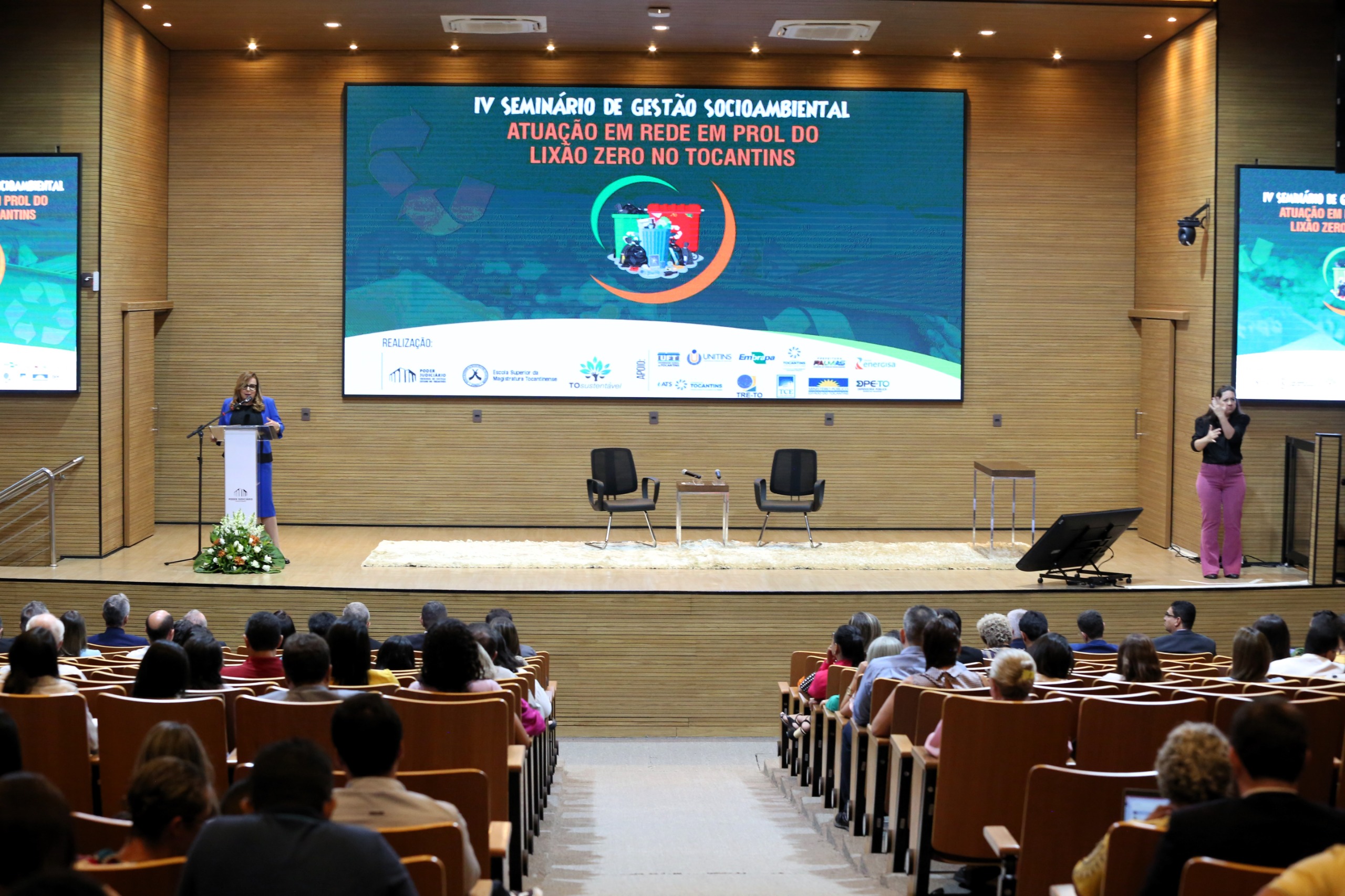
In her speech, she cited a report of 2023 by the Brazilian Association of Waste and the Environment, indicating that, in 2022, around 33 million tons of waste were improperly dumped in the environment, distributed in approximately 3,000 open dumps in the country. "According to the data, this amount is enough to fill two hundred and thirty-three Maracanã stadiums," she said.
Regarding the northern region, Angela pointed out that 63.4% of waste is disposed of inappropriately, being taken to dumps or controlled landfills, causing serious damage to health by contaminating the air, water and soil.
"The impasse surrounding dumps is alarming. They are real environmental and health time bombs that cause serious damage to human health by contaminating the air, water and soil," she said.
The Vice-President acknowledged the progress made over the last fourteen years, such as the implementation of selective collection programs and partnerships with waste cooperatives of pickers, but emphasized that there is still a lot to be done. With this in mind, she stressed the need for cooperation among the Judiciary, the government and society in order to tackle environmental challenges, promoting waste management that is environmentally correct, economically viable and socially fair.
"This event is proof that we, as a network, are willing to overcome barriers and face challenges for the sake of a fairer and more sustainable world. The judiciary cannot lead this fight alone. Governmental and social action will always be essential," she said.
The Justice said that networking is essential for progress, as it allows us to develop innovative and sustainable solutions. "Networking is what makes us agents of change. It's the key that opens the door to progress, because together we can leverage our skills and develop innovative and sustainable solutions," she said.
Angela closed by encouraging all the participants to get involved in the environmental cause, stressing the importance of a new social mentality committed to sustainability.
"Different species and elements interact interdependently. Similarly, networking involves collaboration and interdependence between public and private institutions, promoting a balanced and efficient system to achieve shared goals. We are fortunate to be able to count on invaluable partnerships in this new journey," she concluded.
Magna Lecture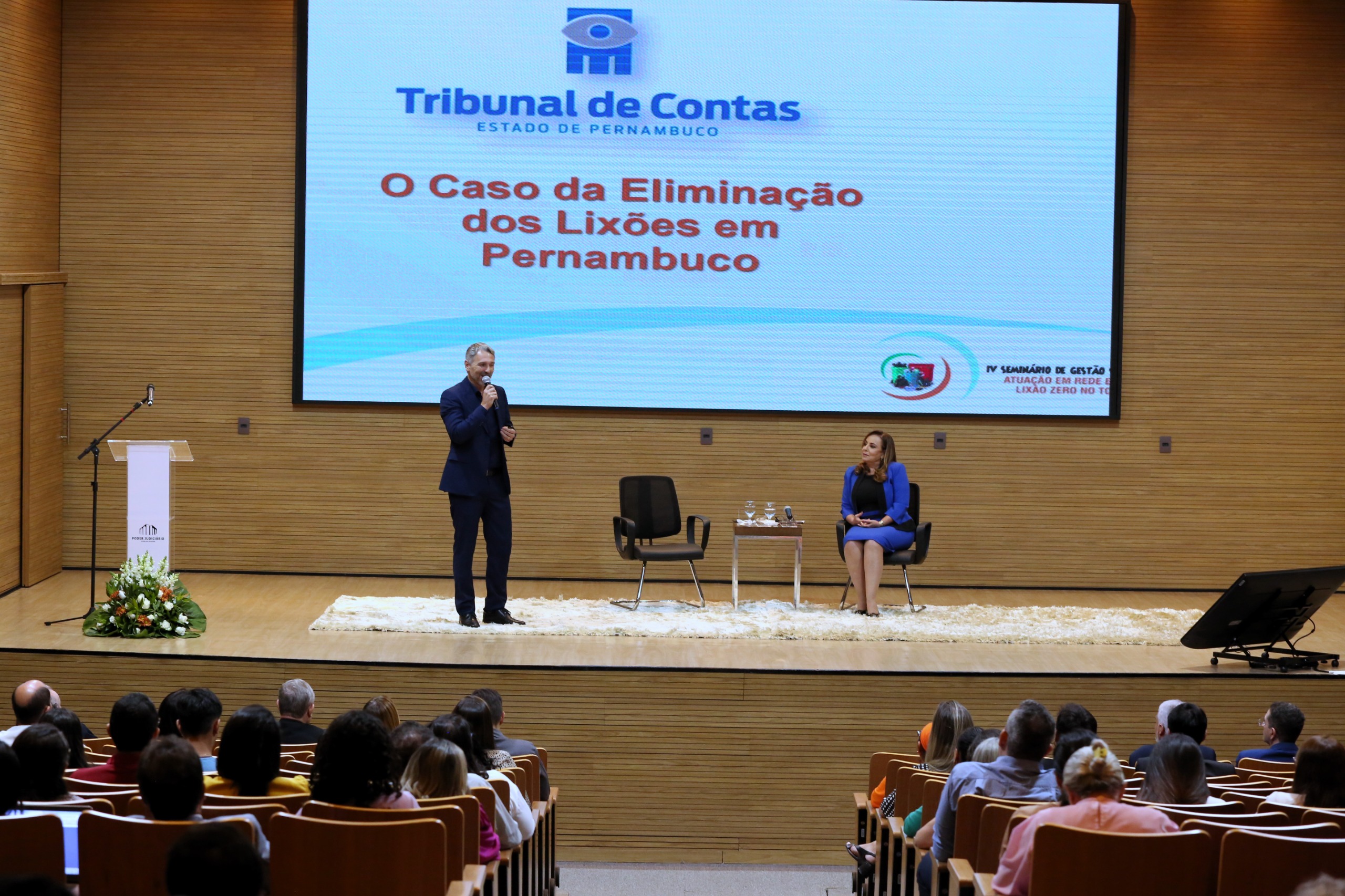
With the theme on "Panorama of Solid Waste Management in the State of Pernambuco - Closure of Dumpsites -", Pedro Teixeira, an external control Auditor from the Court of Auditors of the State of Pernambuco (TCE/PE), began his presentation by congratulating the TJTO and Esmat for their outreach and networking, mentioning that the success of Pernambuco was due to networking and suggesting that the State of Tocantins is on the right track.
Pedro mentioned that, despite the existence of landfills in some municipalities in the State, progress is possible. In his presentation, he explained how Pernambuco eliminated landfills, highlighting the importance of cooperation among agencies and the implementation of sanitary landfills. 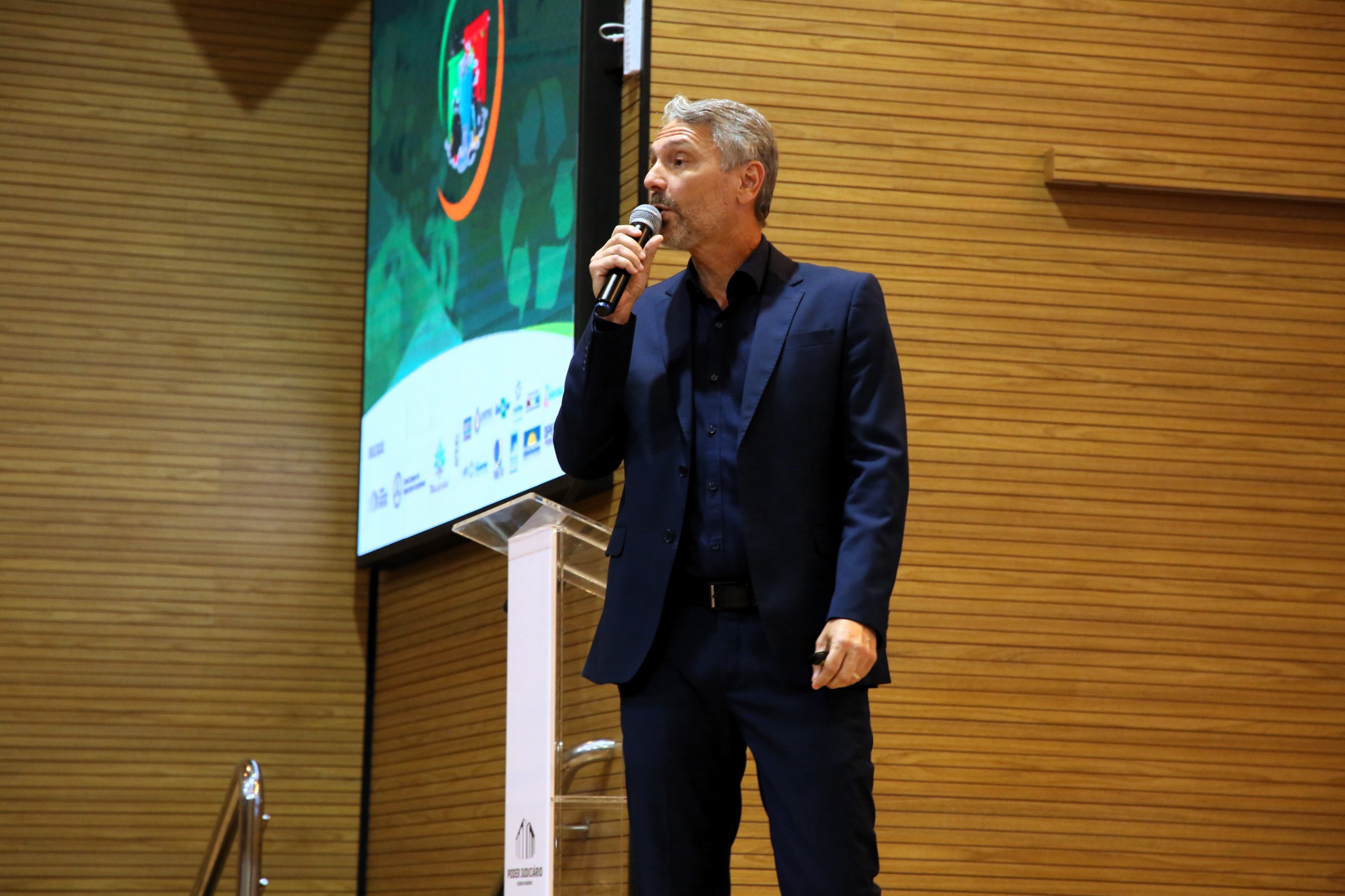
Aiming to share good practices, the speaker shared the actions developed by the State of Pernambuco, such as the implementation of sorting sheds to reduce costs and increase efficiency in waste management, as well as a cooperation agreement between the State University of Pernambuco and public schools to encourage recycling.
"There are simple solutions and extremely sophisticated solutions. There's no point in thinking about wanting a business like this here in the city of Palmas today, because it will be very difficult to achieve. But we can adapt these ideas to the reality of the State of Tocantins, which has smaller and more distant municipalities. Solutions exist and you are on the right track with this union," he said.
Cultural Shows and Presentations
The event included a cultural presentation by students from the University of Maturity and a technology exhibition developed by students and professors from the Federal Institute of the State of Tocantins, Dianópolis campus. In the experiment, seized cigarettes were transformed into agricultural inputs.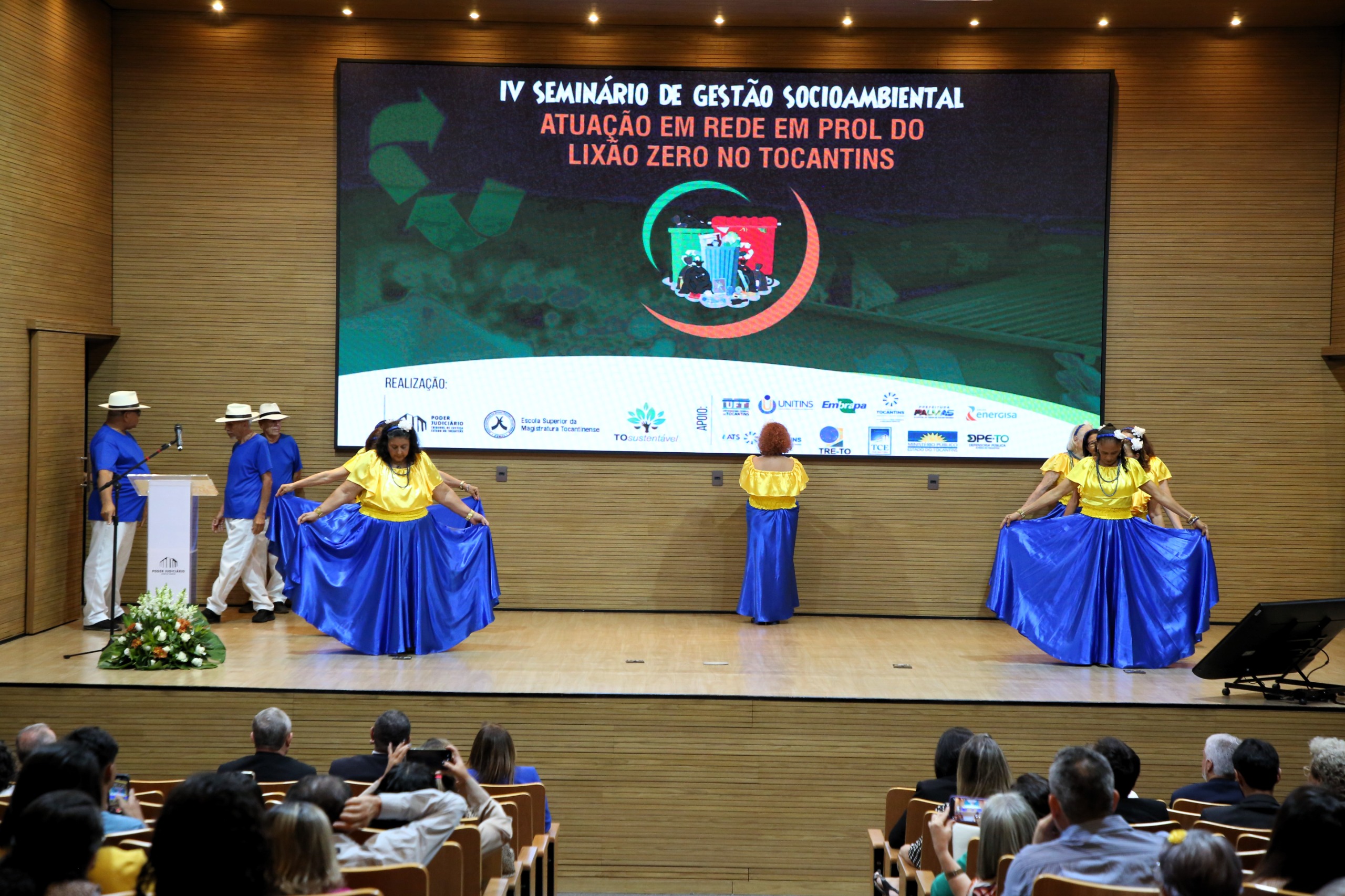
Signing of The Technical Cooperation Agreement
The seminar also marked the renewal of the Technical Cooperation Agreement of the Sustainable TO Network. The document, signed by all members of the network, aims to exchange experiences and information, promoting joint actions and mutual support for the implementation of inter-institutional programs, projects and actions of social and environmental responsibility.
The Sustainable TO Network is made up of several bodies, including the Court of Justice of the State of Tocantins, the State Prosecution, the State Court of Auditors, the State Public Defender's Office, the Federal University of the State of Tocantins, the State University of Tocantins, the Regional Electoral Court, the State Government of Tocantins, the Secretariat for the Environment and Water Resources, the Sanitation Agency of the State of Tocantins, Palmas City Hall, the Municipal Environment Foundation, the Brazilian Agricultural Research Company and Energisa.
The programming for the second day, Friday (June 14th), can be seen below clicking here.




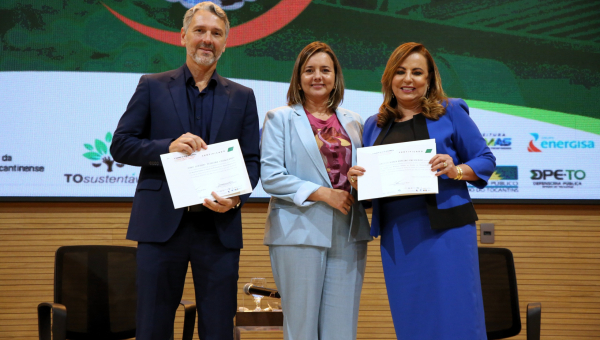
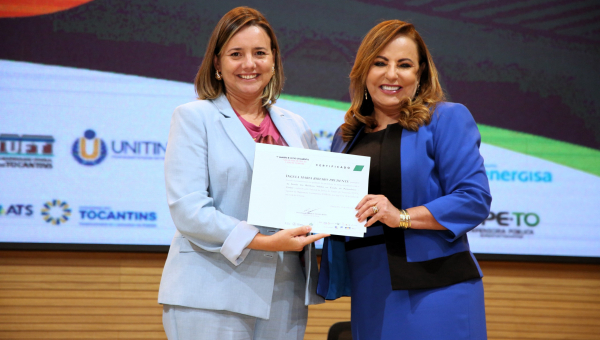
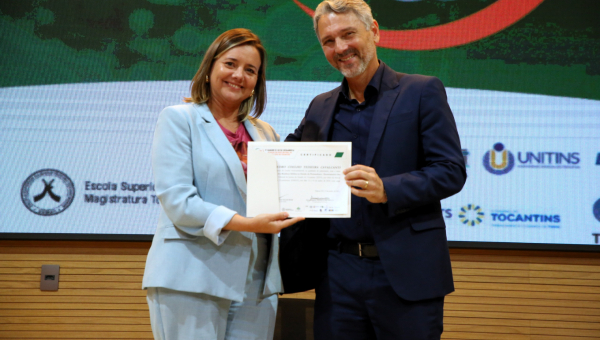
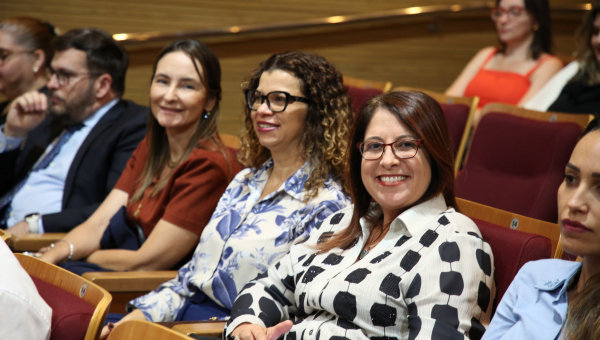

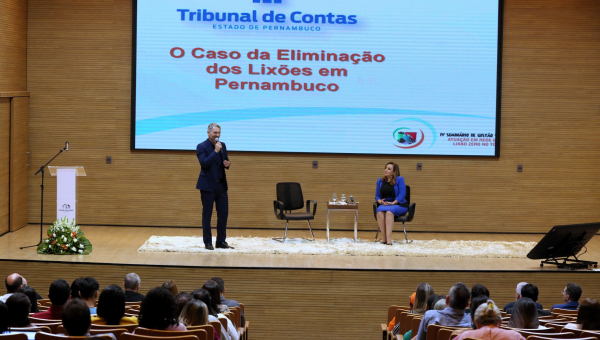
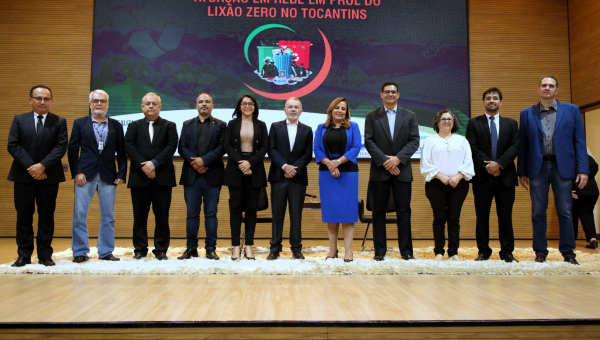
_thumbnail_thumbnail.jpeg)
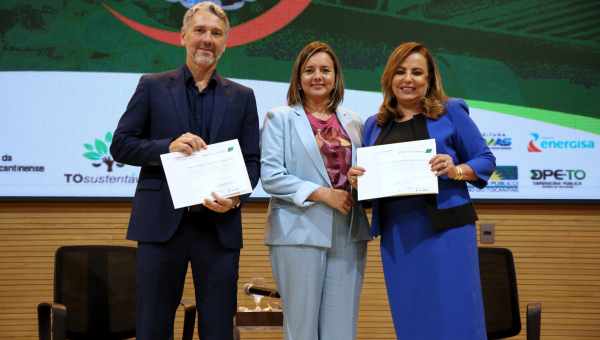
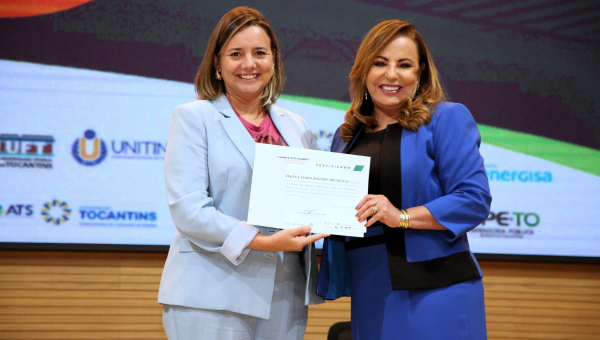
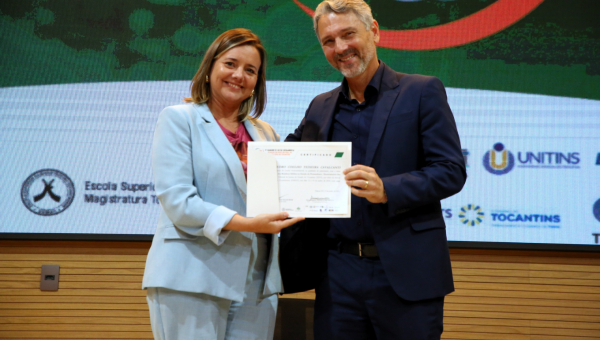
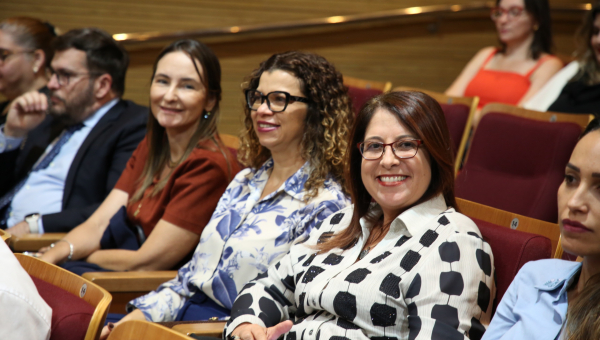

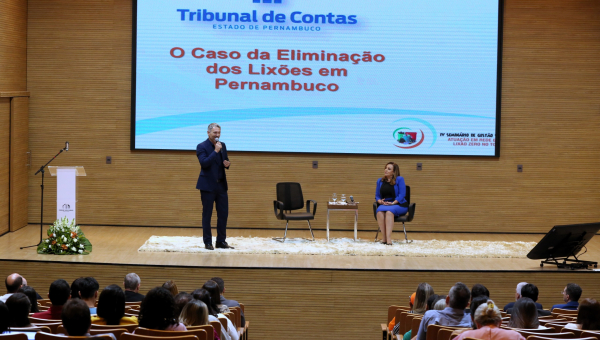
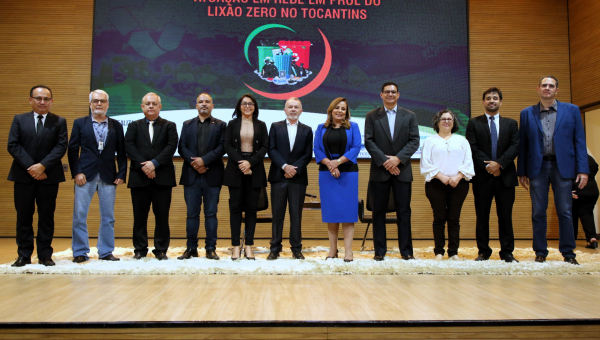
_thumbnail.jpeg)
